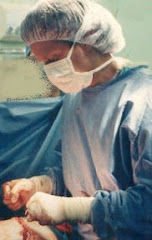It's all the rage as an alternative method of teaching, and thus, learning. It has been advertised as the best of the best to have students learn to reason out problems and come up with solutions. But it is not an easy thing for teachers to do. It takes planning, and and understanding of the process. Most professors fail to recognize that and believe that it is something they "just know" because of their PhD, or teaching experience, or whatever. 
The skill is based on the concept that a discussion has to unfold among students with appropriate use of resources to ask about unknowns. In the proper execution of problem based learning, the professor is NOT one of those resources and is a "guide on the side" mentor of the process, NOT the authority or expert.
Managing Discussion and Debate Effectively
- The problem solving part (the "answer") must be delay long enough to clarify the facts, frame analysis, evaluate, make judgements, ascertain recommendations. This take TIME...minutes, days, weeks perhaps.
- It is imperative to shift points of view of the student (thru the problem or the mentor professor) to see things from the perspective of the anatomist, the physiologist, the pathologist etc. At this stage the student evaluates the case from those perspectives and compares the dynamics of the perspectives (after some research)
- Consideration of benefits/disadvantages of a position; for all sides. Again takes time to acquire the evidence based knowledge.
- Fully consider time, ethical, moral, other science, system, cost and risk/benefit issues.
After discussion, the process requires time to research the issues, discuss further, come back to class for clarification and guidance, and then further develop to final conclusion. This all takes guidance and TIME.
How Not to Teach with Cases:
- Have no clear goals other than arriving at an answer from an A thru E list.
- Don't know what you want to accomplish in the case, what facts, principles, viewpoints the students should cover.
- Provide little, if any, time to work thru the discussion.
- Provide no direction, guidance or resources.
- Do not allow class discussion to follow its own course.
- Provide instant answers to questions based on your inner depth of knowledge or your PhD dissertation.
- Don't provide enough class periods to discuss the case, and go off to do the literature searches, and research necessary for the next discussion.
- Don't mentor or encourage preparation before discussion and out of class prep time.
- Don't take time to get good at learning how to write, lead and execute a case based class.
- Just throw a case up on Powerpoint, and say "OK, discuss this among yourselves,"
- Expect miracles if you do the above...cause if any learning happens...it will be.
This process cannot be done in 2 minutes in class. This process should provide the framework for learning, not for creating additional stress...especially right before a huge exam. Why is it that professors believe that their science knowledge provides them the knowledge of teaching, particularly when the opposite is true? The arrogance is so palpable sometimes. Teaching is actually a great role and responsibility than being a clinician, yet it is taken so lightly by so many.
Teaching is an unnatural process. It's not natural for most. Teaching requires real attention to learning how to do it, and being open minded enough to learn how to do it...for the good of the student, and optimization of learning. In the end it will only help to create better providers and shift to teaching students how to be life long learners. Some of the nicest people, most accomplished professionals (doctors, scientists, etc) are the WORST teachers. But they never think so :)




